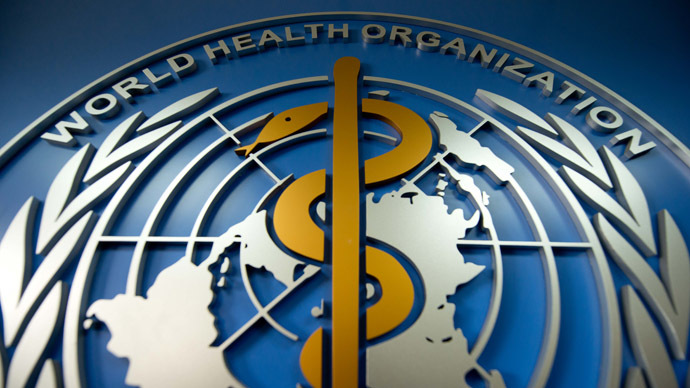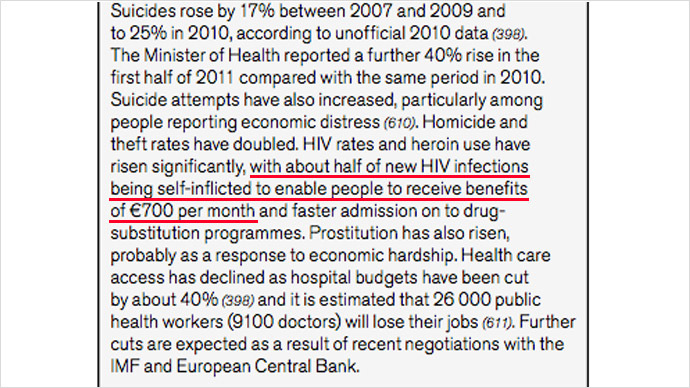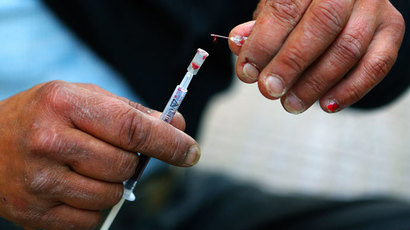WHO admits 'erroneous' claim half of new HIV cases in Greece 'self-inflicted for cash'

The WHO has mistakenly over exaggerated the data in its recent report on Greece, stating that half of new HIV cases are self-inflicted to receive benefits. The organization has apologized saying it was due to an editing error.
“The sentence should read: ‘half of the new HIV cases are self-injecting and out of them few are deliberately inflicting the virus’,” the WHO (World Health Organization) said in its correction.
Statement: Correction on erroneous reference on #HIV cases in #Greece in a @WHO_Europe report http://t.co/LsHIfGDliY. We apologize for this
— WHO (@WHO) November 26, 2013
The report is still available online at the WHO’s website and contains the misleading claim on p. 112 of the study.

The WHO report, ‘Review of Social Determinants and
the Health Divide in the WHO European Region’, has estimated a
“significant” rise in Greece’s HIV rates in the past five years.
In its initial report, it said that about half of new HIV
infections are self-inflicted “to enable people to receive
benefits of 700 euro per month and faster admission on to
drug-substitution programs.”
The WHO has admitted that the “erroneous reference” is based on a study published in the Lancet by Alexander Kentikelenis and colleagues in September 2011. The report, at the same time, was referring to the “Ad hoc expert group of the Greek focal point on the outbreak of HIV/AIDS in 2011” (Greek Documentation and Monitoring Centre for Drug, 2011), the WHO clarified.
Back in 2011 the claim that "some problem users" were
infecting themselves for benefits grabbed the attention of health
organizations.
The president of the Hellenic Society for HIV and director of the
infectious diseases unit at the Red Cross Hospital, Marios
Lazana, repeated the claim, but he could not present any evidence
to confirm it.
“Theoretically, [this HIV inflectional contamination] could
still be there, in isolated cases, but it cannot be proven.”
Lazanas told the local Proto Thema daily at that time.
Greece, since 2008 struggling through its most severe economic
crisis, has reported a 52 percent increase of new HIV infection
in 2011 compared to 2010. The rise has been
“largely” driven by infections among people who have
injected drugs in recent years, the WHO said.













